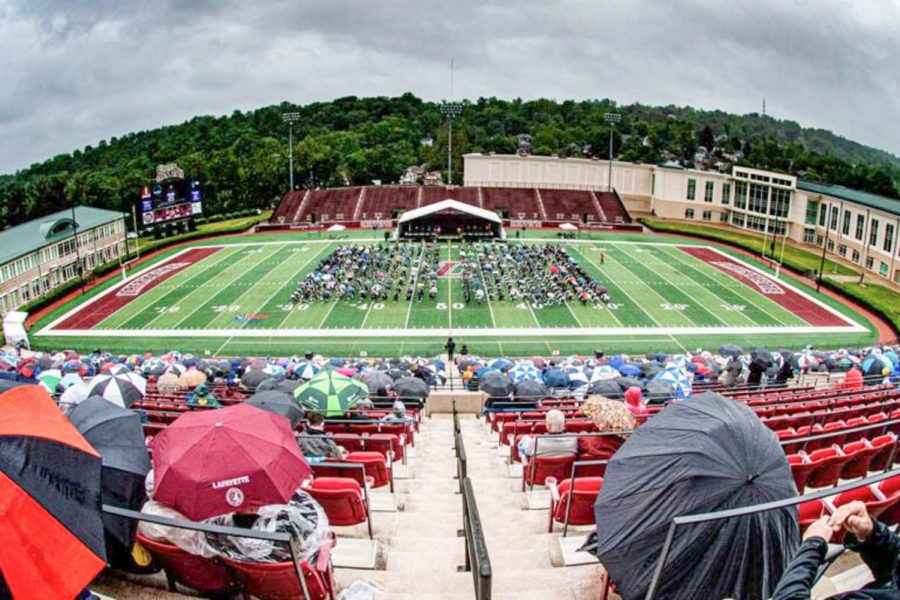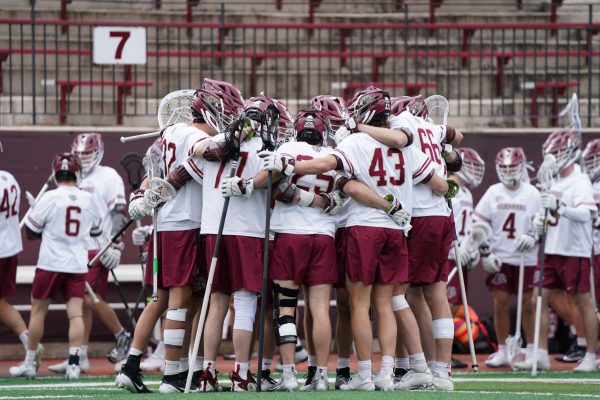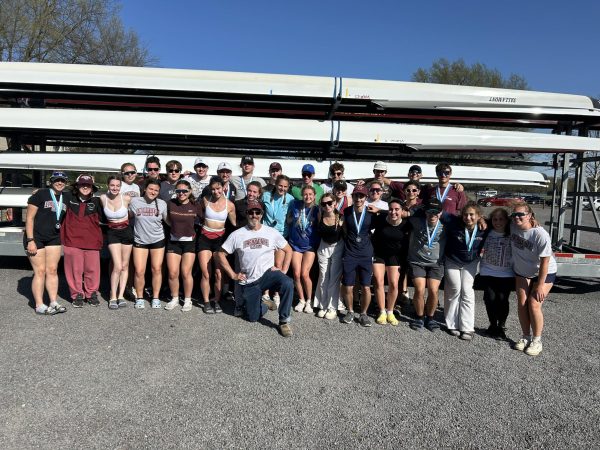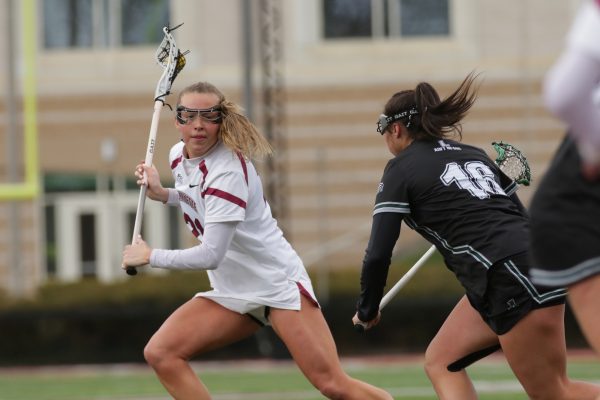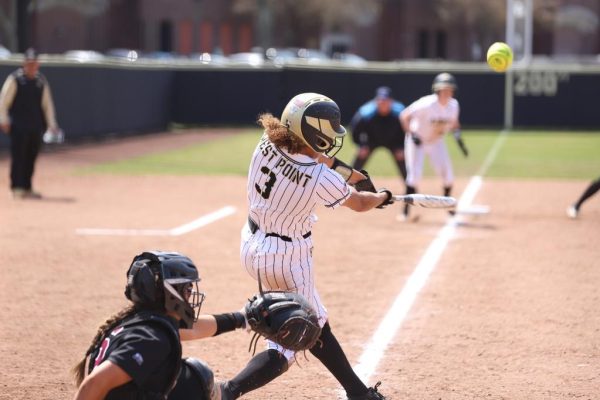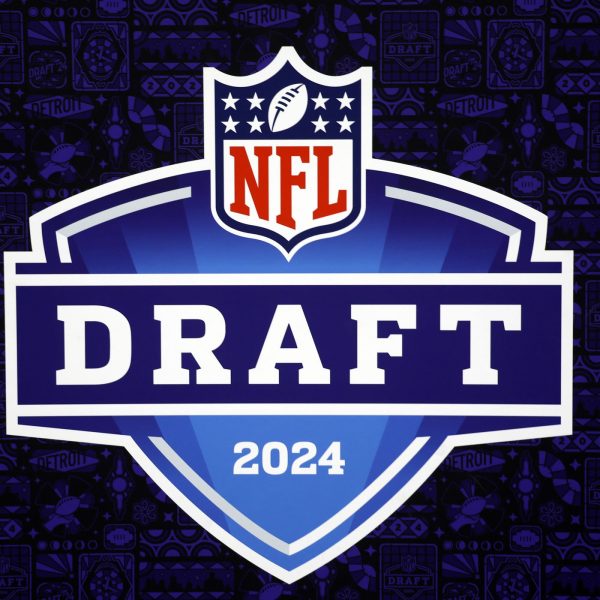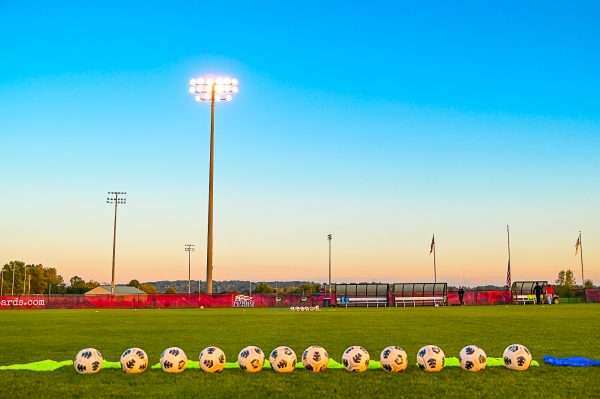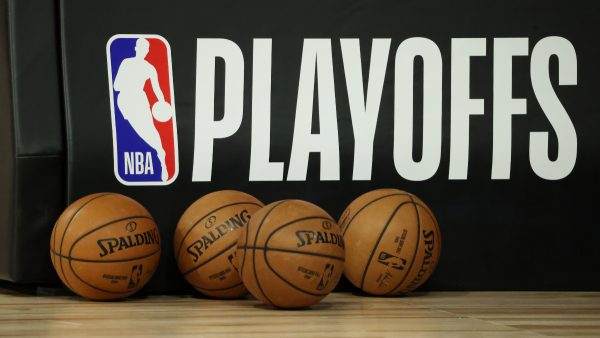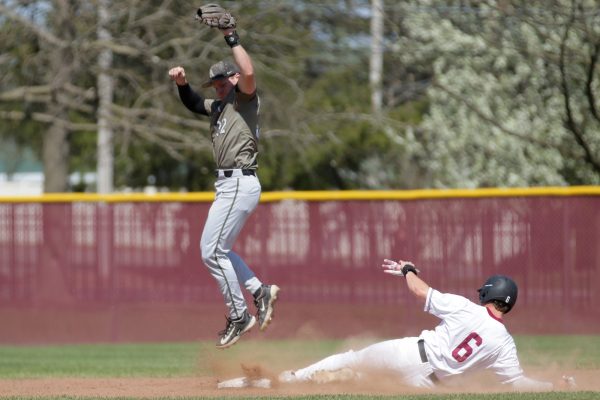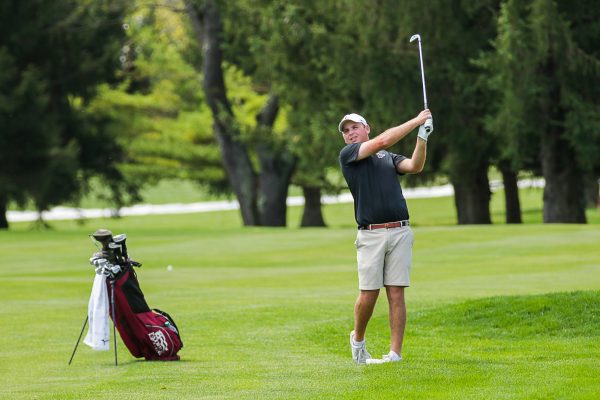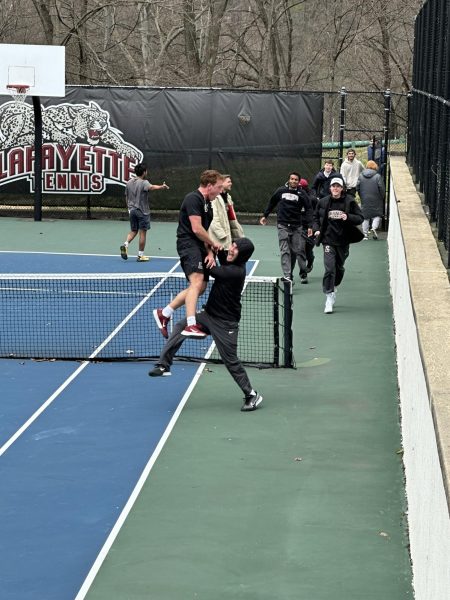Lafayette’s athletic programs lead nation, place among Ivies in Graduation Success Rate
Lafayette tied with seven other schools for first in the nation in Graduation Success Rate (GSR), with 22 of Lafayette’s athletic programs claimed a 99% overall GSR. (Photo courtesy of Lafayette Communications)
December 10, 2021
Ranking first in the nation in the NCAA’s Division I annual Graduation Success Rate (GSR), Lafayette’s athletic programs claimed a 99% overall GSR. 21 out of 22 Leopard teams achieved a 100% GSR. This accolade was released last Thursday, marking the second consecutive year Lafayette is receiving this honor.
“It’s a recent recognition of which we are very proud. The academic distinction is a tribute to the hard work of our student-athletes, coaches and administrators who understand that education is at the core of all that we do,” Director of Athletics Sherryta Freeman wrote in an email.
Seven other schools matched Lafayette’s rate to tie for first, including Ivy League’s Yale, Harvard, Dartmouth and Columbia, the Atlantic Coast Conference’s Duke and the Atlantic 10 Conference’s La Salle.
As for the Patriot League, Holy Cross equaled Lafayette for the highest overall GSR (99%), with Bucknell and Colgate following behind.
“That’s a great accolade. Lafayette’s academics are top tier, and the sports are top tier. It’s really the perfect balance of both worlds, academically and athletically,” sophomore basketball player Jon Brantley said. “I’m honestly not surprised but very proud of Lafayette for that.”
“I was excited to see that Lafayette has one of the best graduation rates in the country, but I was not super surprised,” senior swimmer Samantha Talecki said.
Among the 21 programs to receive a perfect GSR were men’s and women’s basketball, men’s and women’s cross country, fencing, men’s and women’s lacrosse, men’s and women’s soccer, men’s and women’s swimming and diving, men’s and women’s tennis, men’s and women’s indoor and outdoor track and field alongside baseball, golf, field hockey, softball and volleyball.
The Department of Athletics’ priority has been providing the resources to ensure student-athlete academic and athletic success, according to Freeman.
Freeman explained that the athletic-academic support programming includes, “access to peer mentoring, structured study, and academic enhancement workshops and coaching programs.”
As explained on the academic support website, the monitored study program, called structured study, is a requirement for first-year student-athletes.
On the other hand, the peer mentor program is solely for first-year student-athletes who are matched with experienced athletes for mentoring and guidance. The mentors meet weekly with these students to help develop their skills, get them connected to resources and provide advice to help them adjust to college life while also balancing Division I athletics.
Academic enhancement workshops and coaching programs are held each year during orientation and throughout the year for first-year student-athletes as they learn topics like time management, note-taking and exam preparation. Academic coaching is also provided throughout their first semester, in which students’ strengths and needs are assessed to establish a personalized plan in developing their academic skills.
“In terms of post-graduate planning, we encourage student-athletes to utilize the Gateway Career Center while also taking advantage of team alumni connections and networking nights,” Freeman wrote. “We also have incredible faculty mentors that provide such tremendous guidance for our student-athletes.”
Freeman also noted the importance of continuing to recruit student-athletes who are committed to both academic and athletic success.
“We continually evaluate our programs and strategies by talking with faculty and staff, student-athletes and others in the academic community to make sure that our programs and strategies evolve as needs change,” Freeman wrote.
Talecki added that athletics sends athletes weekly emails about relevant academic resources such as tips for registering for classes and finals.
“Being an athlete at Lafayette, I have always felt supported by my coaches and the athletic department staff to prioritize academics,” Talecki said.



































































































